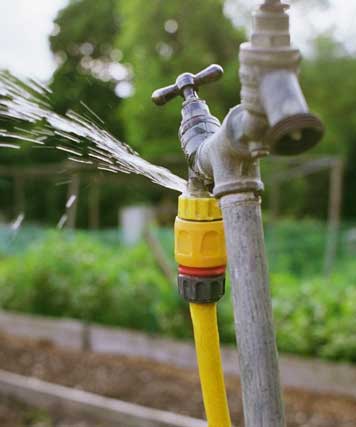How do you feel with regards to Detecting hidden plumbing leaks?

Early discovery of leaking water lines can reduce a prospective calamity. Some tiny water leaks may not be noticeable.
1. Check Out the Water Meter
Every residence has a water meter. Examining it is a proven way that assists you find leakages. For beginners, switch off all the water sources. Make sure no one will purge, use the tap, shower, run the washing machine or dishwashing machine. From there, go to the meter as well as watch if it will alter. Since nobody is utilizing it, there ought to be no activities. That indicates a fast-moving leak if it relocates. If you find no adjustments, wait an hour or two as well as inspect back once more. This suggests you might have a sluggish leakage that might also be below ground.
2. Check Water Consumption
If you detect unexpected modifications, despite your intake being the same, it indicates that you have leaks in your plumbing system. An unexpected spike in your bill indicates a fast-moving leakage.
A consistent boost every month, also with the exact same habits, reveals you have a slow leakage that's additionally slowly intensifying. Call a plumber to extensively inspect your home, specifically if you feel a warm location on your flooring with piping underneath.
3. Do a Food Coloring Test
When it comes to water usage, 30% comes from toilets. If the shade in some way infiltrates your bowl throughout that time without flushing, there's a leakage between the tank and dish.
4. Asses Exterior Lines
Don't fail to remember to check your outside water lines also. Should water seep out of the connection, you have a loosened rubber gasket. One little leakage can throw away tons of water as well as surge your water bill.
5. Assess the circumstance and evaluate
Home owners must make it a practice to examine under the sink counters as well as even inside cupboards for any bad odor or mold and mildew growth. These 2 warnings show a leak so punctual attention is called for. Doing routine examinations, even bi-annually, can save you from a significant problem.
A lot more notably, if you know your house is already old, keep a watchful eye on your heating units, tubes, pipes etc. Check for stainings and also weakening as most appliances and pipelines have a life span. They will certainly likewise normally degrade because of wear and tear. Do not wait for it to intensify if you believe dripping water lines in your plumbing system. Call a professional plumber right away so you do not end up with a horrible mess in your home.
Early discovery of leaking water lines can reduce a prospective calamity. Some small water leaks might not be noticeable. Examining it is a surefire way that assists you find leakages. One small leakage can throw away bunches of water and spike your water expense.
If you presume dripping water lines in your plumbing system, don't wait for it to escalate.
WARNING SIGNS OF WATER LEAKAGE BEHIND THE WALL
PERSISTENT MUSTY ODORS
As water slowly drips from a leaky pipe inside the wall, flooring and sheetrock stay damp and develop an odor similar to wet cardboard. It generates a musty smell that can help you find hidden leaks.
MOLD IN UNUSUAL AREAS
Mold usually grows in wet areas like kitchens, baths and laundry rooms. If you spot the stuff on walls or baseboards in other rooms of the house, it’s a good indicator of undetected water leaks.
STAINS THAT GROW
When mold thrives around a leaky pipe, it sometimes takes hold on the inside surface of the affected wall. A growing stain on otherwise clean sheetrock is often your sign of a hidden plumbing problem.
PEELING OR BUBBLING WALLPAPER / PAINT
This clue is easy to miss in rooms that don’t get much use. When you see wallpaper separating along seams or paint bubbling or flaking off the wall, blame sheetrock that stays wet because of an undetected leak.
BUCKLED CEILINGS AND STAINED FLOORS
If ceilings or floors in bathrooms, kitchens or laundry areas develop structural problems, don’t rule out constant damp inside the walls. Wet sheetrock can affect adjacent framing, flooring and ceilings.
https://www.servicemasterbyzaba.com/blog/how-to-detect-water-leakage-in-walls/

I have been very inquisitive about Detecting hidden plumbing leaks and I really hope you appreciated the new entry. Are you aware of someone else who is inquisitive about the subject? Do not hesitate to share it. Thanks for taking the time to read it.